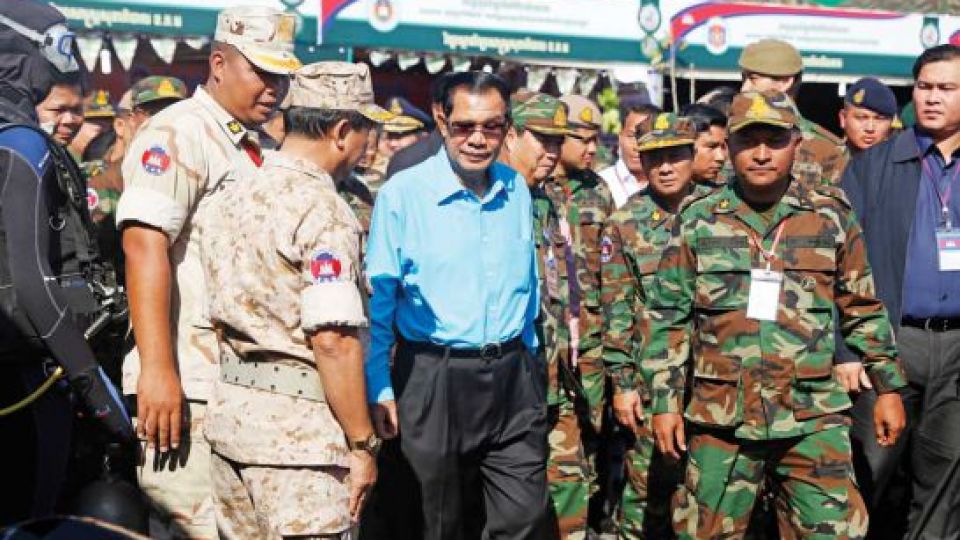February 1, 2018
Voted into power in 1985, Hun Sen helped rebuild Cambodia after the brutal Khmer Rouge regime forced the country to its knees, leaving an estimated two million dead.
33 years later, the notorious strongman is still at the helm – and shows no signs of loosening his grip on power as the country prepares to head to the polls in July.
Always a controversial figure, the prime minister has been repeatedly accused of using underhanded and even violent methods to stamp out threats to his position. In 1997, his party wrested power from the royalist Funcinpec party – the winner of the 1993 elections- in a violent coup that lead to the execution of dozens of Funcinpec military officials, according The Phnom Penh Times.
The legitimacy of the 2008 and 2013 elections, were also questioned. According to the BBC, the EU accused the CPP of using state resources for its 2008 campaign, whilst Human Rights Watch commented on the government’s crackdown on activists and political opponents ahead of the 2013 elections.
Now, with another election looming on the horizon, history seems to be repeating itself.
In February last year, Hun Sen ordered controversial amendments to the 1997 Law on Political Parties, the Phnom Penh Post reported.
Some of the changes include preventing convicts from leading political parties and allowing authorities to disband a political party if its leaders are convicted of crimes, the Phnom Penh Post reported.
The changes were slammed by critics as paving the way for the main opposition Cambodia National Rescue Party (CNRP) to be dissolved.
The amendments prompted popular CNRP President Sam Rainsy to resign in order to protect the party, as he had been convicted of offences believed to be politically motivated in the past.
Foreign and critical media, as well as NGOs were next to find themselves in the line of fire. In early August last year, The Phnom Penh Post reported that a number of media organisations and prominent NGOs faced accusations that they owed taxes, including English-language paper The Cambodia Daily, which was ordered to cough up $6.3 million in back taxes or face immediate closure.
Radio stations were not spared, with a number of broadcasters across the country abruptly ordered to shut down. Among those targeted were Phnom Penh-based Moha Nokor, a station broadcasting shows produced by the main opposition Cambodia National Rescue Party (CNRP), as well as foreign media.
The situation escalated further in September with the arrest of Cambodia National Rescue Party leader Kem Sokha – without any regard for his parliamentary immunity – for allegedly plotting a US-backed revolution to topple Hun Sen’s government. Sokha was transported almost 200 kilometres to a correction centre near the Vietnamese border, and authorities warned that arrests of other party members could follow.
A month later, the supreme court made a highly unpopular decision to dissolve the Cambodia National Rescue Party (CNRP). The CNRP was accused, like its leader, of involvement in a foreign-backed attempt at toppling the government.
Despite scant evidence, the presiding judge – senior CPP official Dith Munty – ordered the disbanding of the party and banned 118 of the CNRP’s senior officials from engaging in any political activities for five years. Because of changes to electoral laws made the month before, the CNRP also was stripped of all its seats in the National Assembly and commune chief positions, which were to be distributed to other political parties.
The move was widely condemned by the local and international community, with CNRP spokesman Yim Sovann branding the decision the “end of democracy,” according to The Phnom Penh Times.
CNRP Deputy President Mu Sochua was more optimistic, stating in The Phnom Penh Times that although the move was a “blow to democracy,” the “democratic movement for change inside and outside Cambodia will be glued together stronger than ever.”


